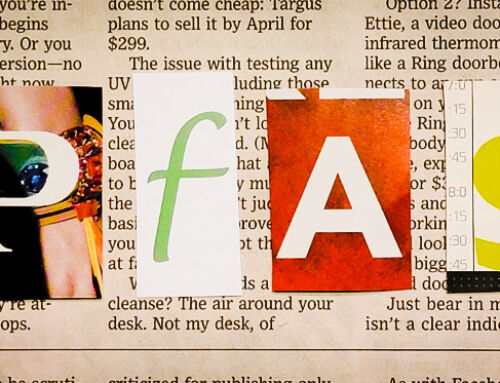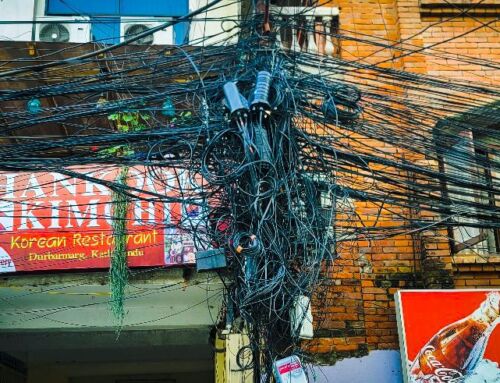View by Topic
Recent Articles
-
New Environmental Laws from the 2024 Maryland Legislative SessionSaturday, April 27th, 2024
-
EPA Designates PFOA and PFOS as Hazardous Substances under Superfund LawSaturday, April 20th, 2024
-
Federal Government Finalizes New Efficiency Standards for LightbulbsSaturday, April 13th, 2024
-
2024 IECC is Final After Addressing Preemption IssuesSaturday, April 6th, 2024
-
Settlement Portends Broad Failure in Attempts to Ban Natural GasSaturday, March 30th, 2024
View by Month/Year
“Green Building Law Update” Headlines
Recent Articles & News from
Stuart Kaplow’s blog
at GreenBuildingLawUpdate.com
- EPA Takes Action: PFOA and PFOS Now Hazardous Substances Under Superfund Law April 21, 2024
- Shedding Light on the Future: The Evolution of Lightbulbs in the Wake of New Energy Efficiency Standards April 14, 2024
- 2024 International Energy Conservation Code is Final After Addressing Preemption April 7, 2024
- Settlement Portends Broad Failure in Attempts to Ban Natural Gas March 31, 2024
Subscribe to the Green Building Law Update!
Stuart Kaplow brings his expertise and extensive experience to the table with his unique digital publication, "Green Building Law Update". Subscribers receive regular updates to keep them informed about important issues surrounding Environmental Law, Green Building & Real Estate Law, as well as the emerging demand for Environmental Social Governance (ESG).
Get fresh content through the lense of Stuart Kaplow's cutting-edge expertise, innovative commentary and insider perspective. Don't miss another issue! Subscribe below.

Tenants Monetizing their Greenhouse Gas Emission Data
In response to new building energy performance standards and other laws requiring reporting of greenhouse gas emissions from buildings, tenants are beginning to monetize their GHG emission data, including their utility data.
In recent days we have seen a drugstore chain, a general merchandise retailer, and other commercial tenants begin putting their landlords on notice that they, the tenant, own their utility data, as well as other proprietary information necessary to calculate GHG emissions and that the tenant will charge their landlord and place restrictions on the use of their proprietary information.
With commercial leasing slow to adapt, one retailer’s policy is to charge its landlords an annual flat fee for providing the information to the landlord so that the landlord can report whole building information to the government and restrict the landlord’s use for any other purpose requiring the landlord to treat the information as confidential. Another tenant has stated that it must be reimbursed for its costs in gathering the information and then expects to share in any incentives attributable to the greener building (e.g., local property tax credits, reselling of aggregated data, public utility incentives, etc.). That tenant policy goes on to provide that the landlord may not pass through charges or other costs to the tenant either to reduce GHG emissions in the building or for the failure of the building to comply with environmental laws.
This is admittedly a nascent movement in commercial leasing but make no mistake tenants are creating this new revenue stream and mitigating risks, including against future costs of complying with new laws, and such has a huge future upside. This is but one modest example of how a decarbonized economy will look dramatically different than that exists today, and when the vast majority of businesses operate in leased premises, there will be reallocations among stakeholders of profits and losses.
That is, while this is new to the landlord tenant relationship (i.e., most landlords have not provided in their leases for obtaining this data they need for government reporting), it is not new to the broader business community where according to published reports data analytics the U.S. utility market generated more than $9.5 Billion in 2021 and is projected to have double digit growth in those data sales each year for the next 10 years.
And appreciate that that huge dollar amount passed hands at a time when there is less than consensus (.. and an absence of well established jurisprudence or new laws, anywhere) about who owns that GHG emission data. In a recent poll that sought to replicate the questions asked in a now widely circulated 2011 poll of utility executives, nearly 50% of the executives responded confidentially that they were unsure whose property the granular customer energy data is. Just over 26% of respondents said it belongs to the customers, while 22% said it belongs to the utility. This of course begs the question of scenarios where electric utilities will charge noncustomer landlords for the data.
Newly enacted laws (.. to the extent they even can trump contracts between private parties) only contribute to the uncertainty when for example, New Jersey, September 7, 2022, BPU Board Order Q021071023, mandates,
To protect consumer privacy, the regulated utilities check whether a commercial building has four or more tenants, and check to confirm that no single tenant consumes more than 50% of the energy or water in that building. If both of these conditions are satisfied, the regulated utility will send the building owner the data. If either condition is not satisfied, then the building owner must get consent from each tenant.
That is, if the New Jersey 4/50 rule is not satisfied, then a building owner must obtain the consent of individual tenants to release their data, and in this new era those tenants will want to be compensated and have their risk, including for inaccuracies in the data, mitigated.
Maryland is still implementing a new regulatory scheme for decarbonizing buildings, and its yet unpublished proposed regulation, seeking to cure a complete void in the enacted BEPS statute, will further drive landlords to compensate tenants and otherwise mitigate their risk,
7) For covered buildings with fewer than five tenants, electric and gas companies shall deliver whole building energy consumption data to the building owner if the building tenants provide written or electronic consent for the delivery of the tenant’s energy data to the building owner.
(a) The building tenant’s consent may be provided in a lease agreement provision.
At present, most legal authorities believe that a business owns its energy consumption data, subject to state laws. That is, a utility is prohibited from providing or selling such information to third parties for commercial purposes not related to services provided by the utility. Another consideration for commercial utility customers may be that protection of the data might be important for competitive or other proprietary reasons, not to mention government imposed confidentiality for some customers. Today, many utilities suggest customer information gathered in connection with time of day metering and appliance energy consumption metering, demand response program metering, and the like should be protected from disclosure to utility affiliates including subsidiaries, and third parties for commercial purposes. Many utilities believe utility customers, as consumers of electricity and gas, warrant privacy protection that restricts access to consumption data to only those parties that consumed the product.
We recently explored some of these issues in a post, Do You Own Your GHG Emission Data?
The surge in BEPS and similar laws is all but weaponizing that data, putting a target on the back of building owners in sophomoric efforts to respond to greenhouse gas emissions that will be a pivotal driver propelling businesses to protect their economic interests and de-risk their utility company interaction.
If there is any doubt that these matters will fundamentally alter the landlord tenant relationship as well as the utility commercial customer relationship, one need only consider the magnitude of dollars involved; in 2022, the utilities market had a valuation of over $6.03 Trillion (.. yes T, Trillion) annually, being more than 6% of worldwide GDP.
We are already working with a broad breadth of businesses, including tenants and landlords, to develop strategies to assist them in taking advantage of this opportunity to monetize their GHG emission data and we expect this will be a burgeoning part of our work into the future.
Join us for our next live webinar “Are You Able to Make Your Building Net Zero?” 30 talking points in 30 minutes, Thursday, October 26 at 9 am EDT presented by Stuart Kaplow and Nancy Hudes. The webinar is complimentary, but you must register here.









